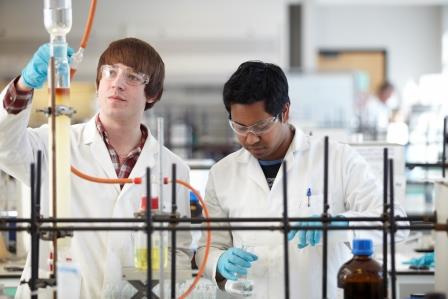Practical work is, again, in the science education spotlight, with findings from a recent Wellcome Trust study suggesting that recent changes to assessment at GCSE are leading to more and more pupils missing out on practical work in science. The fact that science is, as the report states, an inherently practical subject, increases the mystifying decline in practical activity.
The study’s findings show that practical work is highly valued by school students, with over half saying that they wanted to do more. Indeed, practical activities are seen as a key part of learning science by everyone involved in science education. Findings from numerous research studies, including our own, show that practical work plays an important role in student engagement, in classroom management and in improving students’ likelihood to go on to further study of science subjects. Universities and employers alike value the skills of problem solving and group work, as well as the technical skills, that are developed through hands-on practical activities, and schools invest large amounts of money into laboratory equipment and technicians support.
However, the contribution which practical work makes to learning the subject matter of science remains in some doubt. A number of studies, such as those carried out by Robin Millar and Ian Abrahams at the University of York, suggest that it may be largely ineffective in improving learning about scientific concepts or processes. Last year’s PISA results supported this, showing an apparent correlation between a greater frequency of practical-based approaches and lower performance in science. Indeed, all of us who work in science education have observed teachers (and have probably been guilty ourselves of) using practical work as a reward for good behaviour, or – worse – withdrawing it when a class becomes difficult to manage. This means that practical work’s role in the classroom can be perceived as an optional extra rather than an integral contributor to learning, despite what teachers say about how much they value it.
The Wellcome Trust’s study highlights another problem with practical work: the ease with which it can be reduced to a recipe-following procedure. Around a fifth of the students surveyed said that they often simply following instructions without understanding the purpose of the work. Indeed, our work on Improving Practical Work in Science a few years ago showed us how often teachers struggled to explain exactly why they are carrying out a particular practical, instead simply following the scheme of work or recycling the same old activities from year to year.
In the Sheffield Institute of Education, we have worked on many projects worldwide which centre on practical work and inquiry in science. This has shown us again and again how professional development for teachers is vital to getting past the idea of practical work as simple hands-on procedures so that it becomes a minds-on, thought-provoking process of learning.
We have found that it takes little prompting for teachers to realise that they can and should treat practical work like any other classroom activity, so that they consider its contribution to student learning and decide how best to assess this. For example, illustrating to primary school teachers how they can use their school grounds for practical work in science enables them to feel the confidence to take their students for a walk outside, drawing on scientific skills of hypothesising, observing and analysing. And as part of our Chain Reaction project, supporting teachers to design and engage in scientific inquiries enabled them to observe the enjoyment of students from twelve European countries in designing and conducting their own experiments, acting as scientists including even presenting their findings at international conferences.
School leaders and governments often appear to believe that equipping schools with piles of new equipment is a route to high quality practical work. We know, though, that the best practical work may not be the most sophisticated in terms of practical equipment or complex skills. Sometimes the most interesting practicals stem from a lack of equipment, such as teachers we’ve worked with in Ghana who, following professional development, rustle up an engaging and meaningful practical for a class of sixty students with some babies’ nappies, scissors and plastic bowls!
By improving teachers’ confidence through professional development, they feel more able to take a few risks. They use a greater range of practical activities, adapting them to student needs and expertise, and move beyond simple recipe-following procedures to truly scientific activities which are both hands-on and minds-on. It is possible that, following professional development, teachers may end up doing less practical work but it will almost certainly be of a higher quality, so that it contributes not just to behaviour management but also to learning science.
Current changes to the assessment of practical work are once again raising the question of the purpose of practical work. These changes pose a threat to practical work in potentially limiting the variety of practicals on offer in schools and reducing its contribution to learning to a tick-box exercise. As yet, though, we are keeping our minds open about the impact of these changes. We’re just beginning a research study in which we will ask teachers and their students about their experiences of practical work under the current GCSE system. We hope that our findings will help us to better understand the role of practical work and its value in supporting students to learn science. If you would like to be involved and to share your experiences, please get in touch and let us know.
Dr Emily Perry is Deputy Head of the Centre for Development and Research in Education at Sheffield Institute of Education
e.perry@shu.ac.uk
Dr Stuart Bevins is a Senior Research Fellow at Sheffield Institute of Education
s.bevins@shu.ac.uk

Leave a Reply